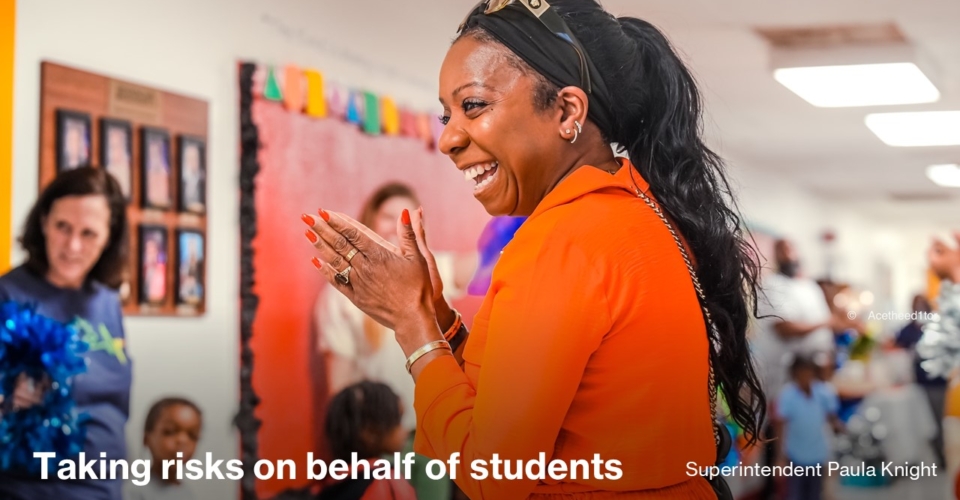Wisconsin’s Middleton-Cross Plains Area School District, voted the No. 1 high school in the Madison metro area by U.S. News, is home to one technology leader who is pioneering student-centered initiatives that drive instruction with technology. Meet Brian Miles.
Now the director of technology services and in his 17th year with the district, Miles has served his community since he was 21. He taught for 15 years, establishing deep roots within the community and his staff.
For instance, Miles works closely with his instructional leaders to ensure data privacy and safety for students. Much of the innovation comes from the district’s teachers, he adds, because they’re the ones tasked with deploying these tools.
“They bring tools to leadership all the time for evaluation,” he adds. “It’s exciting. We live in a world, especially because of our district’s culture, where ideas are freely shared. Folks feel comfortable taking risks and trying new things and figuring out what tech tools are right for them.”
For example, WeVideo has emerged as a popular tool for educators and students to create podcasts to demonstrate learning. “We’re looking for different options for assessment,” he says. “We’re trying to get away from that traditional final at the end of the year and I think multimedia has been a focus for a lot of our teachers.”
Discussions surrounding AI
Like most districts, Miles says Middleton-Cross Plains is in the “observational phase” of AI adoption. “We’re not behind, but we’re also not out in front,” he says. Instead, they’re evaluating what other districts are doing to bring AI into the classroom and eagerly awaiting additional guidance from the state.
“We’re assessing the scene a little bit before we start diving in and adopting tools,” he explains. “A lot of the tools are 18+, right? So, what does management look like and what are the expectations?”
Data protection surrounding AI is top-of-mind for Miles. “How do we protect our student data and make sure we’re using AI tools for productivity purposes without compromising sensitive information?”
More from DA: 3 innovative ways schools are using AI to improve learning
To answer these questions, Miles is leading an AI team comprising the director of teaching and learning and two principals. They’re tasked with creating guidance, establishing system-wide learning criteria and narrowing down which AI tools best fit the district’s goals.
He expects he and his AI team will be ready to roll out some AI guidelines by the start of the school year.
Addressing screen time
Miles says they’re already gearing up for the 2024-25 school year, which includes tackling several top-of-mind issues to set students up for success. The district’s 1:1 device model allows every student to get their hands on a Chromebook and the main question is: How to maximize technology for teaching and learning while avoiding some of the negatives, such as excessive screen time?
“For me, screen time is a really important topic that we should be talking about universally,” he says. When designing instruction, he wants educators to consider how much screen time they’re assigning students.
“The expectations are robust,” he concludes. “We want folks to feel like we’re using this tech as a tool and not just providing another opportunity to watch YouTube and play games.”



